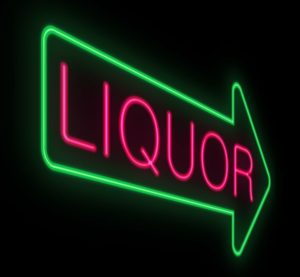 The days of rum-running or bootlegging moonshine have long since passed. The end of prohibition may have legalized liquor sales, but it also brought about a laundry list of regulations that must be followed if you plan to engage in liquor sales of any kind.
The days of rum-running or bootlegging moonshine have long since passed. The end of prohibition may have legalized liquor sales, but it also brought about a laundry list of regulations that must be followed if you plan to engage in liquor sales of any kind.
Owning and operating a liquor store could bring you a steady income and open the door for expansion in time, but only if you go about it the right way. This means understanding laws, knowing your business like the back of your hand, and planning accordingly for success. Here are just a few fundamental concerns to cover when you’re planning to launch a liquor store.
Understand Applicable Laws
The laws governing the sale of liquor are strict, and there are federal, state, and local laws to consider. Most notably, you need to learn all you can about licensing laws. Before you can legally sell liquor, you must have a state-issued license to do so. Check with the Small Business Administration to help you learn about a variety of business licenses and permits by state and, in the case of liquor stores, applicable rules will govern sales, as well as manufacturing, wholesale, and importation.
Perform Market Research
As you know, your target market consists of anyone of legal drinking age (e.g., 21 years or older), but that doesn’t necessarily mean liquor is going to be a big seller in every city and state. Just look at Utah, which had extremely strict liquor laws until recently, and is still more restrictive than many states concerning legal hours of sale and such. The point is, you need to understand local mores concerning drinking, as well as what types of alcohol are going to sell best in a particular market, and to which area you should locate to drive sales.
Prepare to Approach Lenders
Whether you plan to purchase a franchise or you’re looking to launch your own independent liquor store, you need to have a solid plan in place for funding, including a business plan and probably a chunk of capital, before you’ll be able to interest lenders in funding your venture. You’ll need to know how much it’s going to cost to get started and stay afloat for at least the first year and offer planning and projections for at least the first few years.
Know Your Business Inside and Out
With a background in business, you have the knowledge and skills to start and run a business venture, but that doesn’t necessarily mean you’ll succeed in running a liquor store. The best way to succeed as an entrepreneur is to have a passion for your project and be an authority in the field. Plenty of consumers have knowledge of alcohol because they enjoy imbibing. If you don’t know more than they do, how can you hope to interest them in sales?
You also need to understand your market, so you don’t waste major money on inventory snafus. Liquor can be a somewhat speculative business. If you have a good idea of what’s going to sell, and you make consistent sales, you’ll have some wiggle room to try new things in small doses.
Store Basics
In addition to inventory, you will also need a way to store and showcase your bottles. Bottled liquor is a heavy product, which means you need to invest in high-quality shelving, such as gondola shelving units. Purchasing used, or subpar shelving units could spell disaster for your store.
Looking into a security system is crucial when opening a liquor. Something as simple as a convex mirror can deter theft. For additional security, a camera system, tamper resistance products, and an EAS system are recommended. These costs should be taken into consideration when planning the budget for your store.
If you are an owner of a liquor store or plan on opening on we have everything you need for your store, shop our website, Specialty Store Services. If you have a question that you would like answered immediately, you can Live Chat, or phone us at 800-999-0771.
